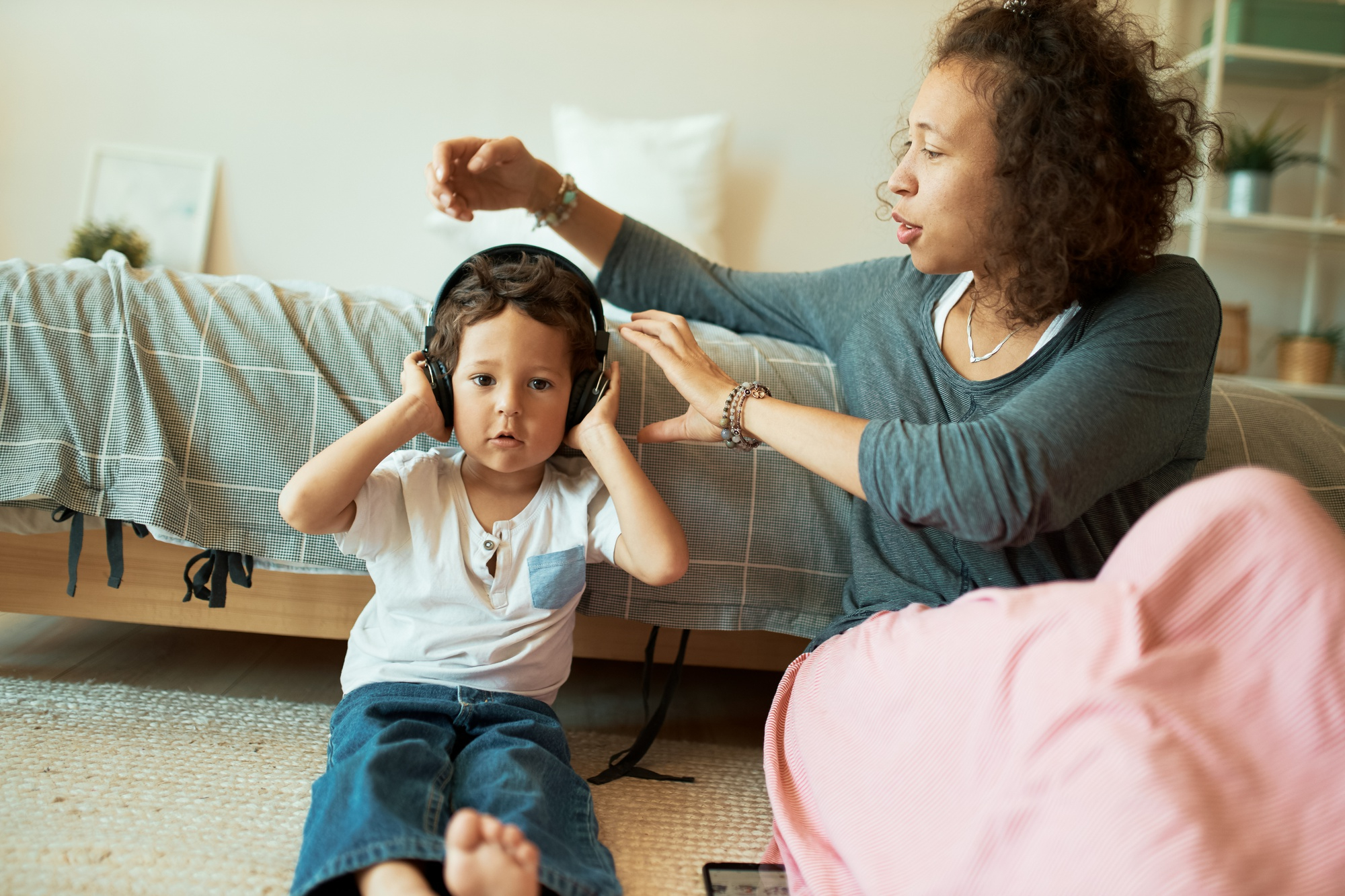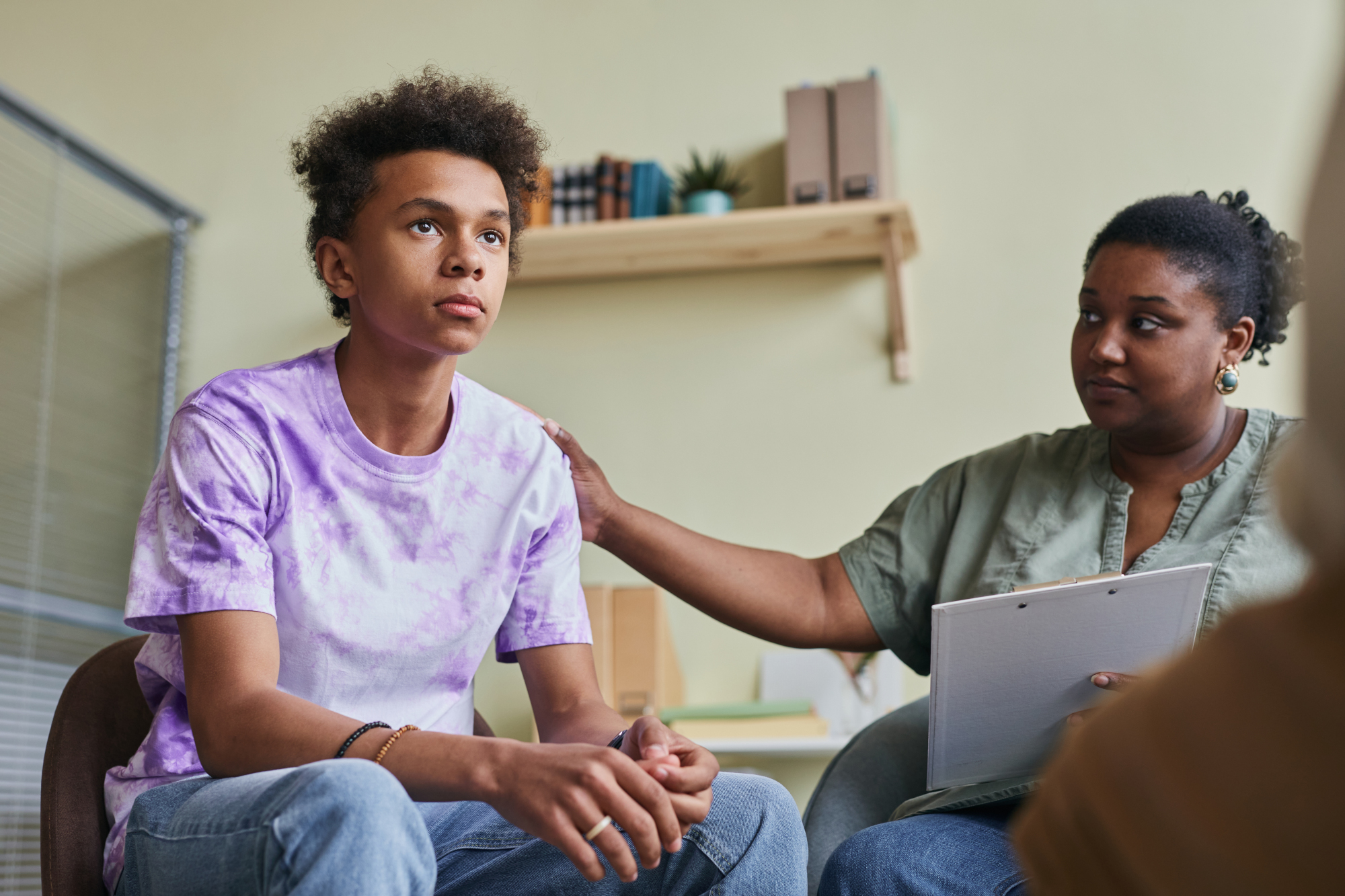Do you and/or your partner identify as neurodivergent? Do you regularly express affection to your partner? How well is affection received in your relationships? Do you find yourself arguing over your needs being met? Are your needs being met?
Perhaps you’re familiar or vaguely familiar with the 5 love languages and how someone likes to show their affection. Neurodivergent (ND) people prefer to express specific forms of affection that mirror their unique experiences.
Love languages can be included in all your relationships, whether they are romantic, family, friends, neighbours, and children. Meeting the needs of the people you care about can be done with a love language through the means they value.
While there have been ways to show affection or “say I love you” as a neurodivergent, on May 27th and 28th 2021, an autistic Metis writer by the name of @neurowonderful on Twitter, posted a tweet that went viral. This tweet lays out the neurodivergent love languages, with the neurodivergent community amplifying this across the platform, and it has been spread across the Internet and solidified as true, and continues to be well studied over the past few years.
What this means is that now we have more information than ever on the subject of love languages. And since January and February are the months we’re focusing on relationships in our blog, we’re here to show you a brief overview of what neurodivergence is. We’ll show you 17 ways neurodivergent people say, “I love you,”, what the 5 neurodivergent love languages are, and how you can participate in them as well as why they’re different from the traditional love languages.
What is neurodivergence?
Neurodivergence is an all-encompassing term describing many unique characteristics, which include differences in body language, focus, speech, learning, emotional processing, and more. While one struggles with communication and sensory overstimulation more, another may deal with tics and have issues learning in a traditional school setting. ND people may also show strengths such as recognizing patterns, compassion, and creativity to name only a few.
Neurodivergent is a nonmedical term to describe a neurodivergent (ND) person, currently meaning someone whose brain works differently in the ways of thinking or processing their thoughts and surroundings, rather than being identical to a neurotypical (NT) or “normal” person. An ND person might be diagnosed with a medical disorder, learning disability, or other conditions. The most notable diagnoses are Attention Deficit Disorder/Attention Deficit Hyperactivity Disorder (ADD/ADHD), and Autism Spectrum Disorder (ASD).
The term isn’t perfect, and some people have issues with the assumption that ND people are abnormal, however the term neurodivergent is useful in describing those with different mental health and life experiences.
How is the neurodivergent experience different?
Neurodivergent people tend to excel in specialized or specific areas, and aren’t any less skilled than their peers. Sadly, in many cases, our social structures at school, work, and even at home don’t make accommodations for ND individuals, making it more difficult for them and their functionality.
Each neurodivergent person appreciates and likes different things. While there might be two neurodivergent people you know who share some interests in common, be sure to get to know each of them as individuals. There are as many ND experiences as there are ND people.
It can be challenging to communicate with people who have minds that process information and communicate their thoughts in a way that’s relatively different from your own. Some neurodivergent people will experience loneliness and/or feel misunderstood in a more extreme way.
The Difference Between Neurodivergent and Neurotypical Love Languages
The traditional love languages, words of affirmation, acts of service, receiving gifts, quality time, and touch, describe how someone will most enjoy being shown affection. And like a neurotypical person, a neurodivergent person can have more than one language, or none of the traditional languages may apply to them, and many have their own ways they process affection.
An example might be one ND person finds light touch overstimulating for them, so “touch” isn’t their love language. However, this same person might enjoy a firm hug to help ground them or regulate their emotions; this love language is known as “deep pressure” (more on that below).
Neurotypical people are more likely to understand the traditional love languages naturally. However, they may need the neurodivergent love languages explained so they understand better, since they may not have experienced the same things as ND people have.
Before the neurodivergent love languages came about, there were general known ways in which an ND person expressed, “I love you,” to someone they cared about.
17 Ways a Neurodivergent Person is Saying “I Love You”
- I wanted to share with you this meme/article/site I came across.
- I know/researched/found out a thing about your favourite thing, let me share it with you.
- You are worth my unstructured time; I would like to spend it with you.
- Let’s share silence.
- I looked up what your problem/issue is; here are some solutions or options.
- Your project is amazing, I came up with some ways to enhance it.
- Do you need a ride home from your routine errand that shouldn’t be a big deal but actually is a Big Deal?
- I notice you’re frazzled. It’s cool. I’ll hang out here in silence until I’m needed by you.
- Liking or loving a social media post you made that I enjoyed.
- You don’t have to book/make the appointment, I will take care of it.
- I did [insert thing] because I knew you’d forget.
- I will not end this phone call or stop these messages until you confirm you did the thing. Which I remind you is the self-care thing.
- We have plans, and I had a bad day, but I’m not cancelling because I know that I will enjoy seeing you more than I would staying home.
- You made a mistake that people don’t normally make, and you’re embarrassed, so here’s my best mistake story.
- You told me about something you hate that’s completely irrational. I remember not to do it/keep it away from you each time.
- I have a list of ideas helpful for avoiding your allergies/sensitivities that you told me about.
- You mentioned a health condition you have the other day. Though I have no prior knowledge of it, I read everything I could, and I have follow-up questions.
NT people do not “do this too.” ND people will to the degree of repeatedly, and sometimes obsessively, invest massive time in them.
A common thread in a lot of these is social anxiety, introversion, and the means of expressing love that are nonverbal, so these features could be common to many different groups, including neurotypical people.
These ways of saying, “I love you,” are still true and used by ND people, and now there is a distinct list of 5 neurodivergent love languages. They are:
1. Infodumping
Infodumping is when a neurodivergent person will talk about their passions or interests, in vast detail and at length. ND people with ADHD or autism are often eager to share what they know of their particular or niche interests. It is an easy way to engage with others, carry conversations, connect with people, and share passions, a bonding activity not exclusive to ND people.
In ND people, infodumping can happen at some inconvenient or inappropriate times. If this happens, be kind, explain now isn’t the time but to write you a message with all they want to share, and follow up with them later.
Encourage the ND people in your life to share their interests! They will be grateful to unload all their knowledge, and it doesn’t take a lot of effort from you, other than listening to their stories and wealth of information.
2. Parallel Play/Body Doubling
Parallel play is when an ND person would like to do an independent activity but around their peers or loved ones who are also doing their own things. ND people can become exhausted with extended periods of interaction or communication, so they would prefer to connect with you by enjoying your presence. It’s a relaxed way to say, “I wish to do this quiet activity right now, but I want to be around you while I do it because I like you.” Find an activity you enjoy, your sketchbook, favourite novel, a crossword puzzle, or just scroll through your phone and enjoy each other’s company. If they feel chatty, they will speak up, but try not to force interactions.
Body doubling is what some people will use to help start and complete projects, like clean a space, do laundry, or look after other household chores for example, which may be difficult for an ND person to do due to lack of executive function. It can be referred to as having an accountability partner, which helps with bettering productivity. A body double is a friend, family member, or partner who will work simultaneously, either in the same room or through virtual means. The idea is having a silent support to make it easier for the ND person to accomplish their task.
3. Support Swapping/Spoon Sharing
It is exactly how it sounds, people helping each other to look out for themselves in tiny ways. Including reminders like, “stay hydrated,” as well as support that’s more involved, like helping to fill out a job application. It’s connected to “spoon theory,” or the idea of people having only so much energy in one day to spend on activities, which are quantified in “spoons.” Support swapping or spoon sharing is a great way to help each other conserve energy, or spoons.
Ask the ND people in your life if there’s anything they could use some help with. “How can I support you today?” Or simply let them know, “I’m here for you when you need me.” They’ll appreciate it.
4. Deep Pressure
Many people, including ND, don’t like being touched without explicit consent, especially by strangers, but getting a big hug from someone they know, love and trust, can help ground or regulate them. Deep pressure is when you give a hug or hand-squeeze, for example, a physical gesture, to help calm, regulate and relax the person receiving it. It has been compared to stuffing the springy toy snake back into its can—it helps contain and alleviate any out-of-control thoughts or emotions they may be feeling.
As with support swapping/spoon sharing, let your ND loved one know you’re always there for them when needed for a hug or their preferred form of deep pressure. Ask how they would rather be hugged or touched, and respect their boundaries by staying in their comfort zone.
Deep pressure is related to “stimming,” which is self-stimulation or self-stimulatory behaviour in repetitive physical movements, words, moving objects, sounds, or other similar behaviours. For example, an ND person may play with a fidget spinner to soothe themselves or distract them from an uncomfortable feeling. For someone who enjoys deep pressure while sleeping, they may have a stuffed toy and/or weighted blanket for beneficial comfort.
5. Penguin Pebbling
We borrow this term from Adélie and Gentoo penguins, who, in the wild, will offer pebbles to each other as signs of affection. Penguin pebbling is the term for ND people showing affection by offering tiny objects, like trinkets or memes (in digital means). These gifts are usually related to someone’s interests in some way, or they could be just a random item they thought the person may like. It’s a way of saying, “I found this thing and immediately got excited and thought of you.”
You can show your appreciation for your ND partner or loved one by keeping together your collection of penguin pebbles. Have a special spot or box designated for these gifts and trinkets, and keep them easily accessible to let them know you enjoy receiving their gifts and they mean a lot to you.
Temporary gifts are okay to dispose of, such as flowers, as they eventually wither. If you want to remember these gifts, take photos, or if you’re unsure of what to do with it, ask away.
It’s All About Connection
Being a neurodivergent person does not exclude them from having neurotypical love languages, and the opposite is also true.
In any connection with another person, the capacity to express various love languages is key. Understanding someone’s specific desires, needs, and expectations makes it more direct to support and nurture a deep bond.
Neurodivergent people may show affection and gratitude differently, but they are as loving and devoted as anyone, so it’s worthwhile to invest the time in recognizing what resonates with them. This understanding is fundamental for building deeper relationships with reciprocal knowledge, respect, and love.
If you need a refresher on the traditional love languages, be sure to check out part 1 of our guide: The Love Languages Part 1: The 5 Most Commonly Known.
Do you still feel like you need some help understanding your partner’s love language? Counselling and psychotherapy are both helpful in addressing issues within them, or nurturing the healthy relationships you already have. Maybe you’re reading this since you’re interested in deepening your relationship, or you’re feeling like yours is more full of arguments and conflict. Our staff at Hopewoods Psychotherapy & Consulting Services are certified and qualified to provide marriage and relationship counselling for couples of many kinds.
Whether you identify as neurodivergent or otherwise, we’re here to help. Feel free to book a 30-minute consultation with us to see if we’re the right fit for you and your partner, or contact us if you have any questions about our therapy services.









 by
by